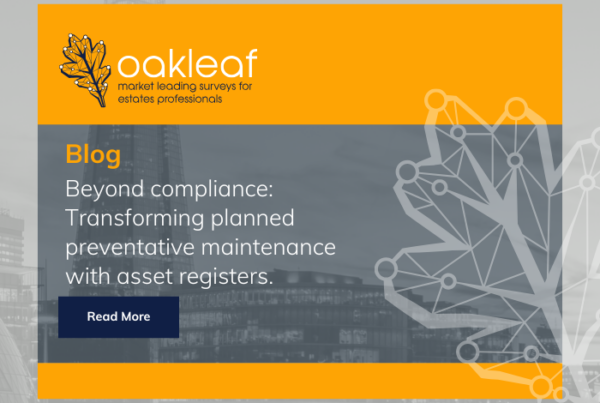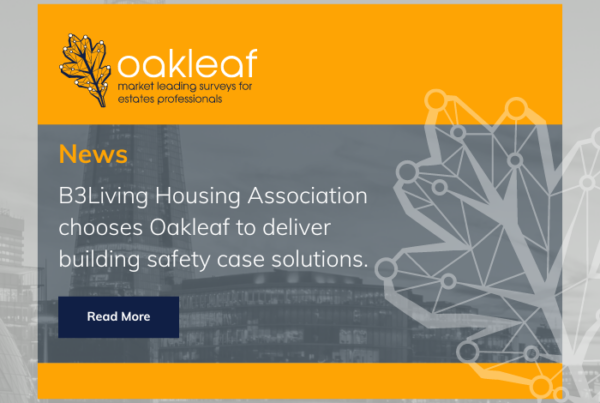It’s all about pinpointing specifics – determining what you want the asset register to tell you and why. Know this, and you’re on your way to compiling valuable, usable data. This is the approach Peter Brown, Director of Technical Services, and his team took to help one UK coffee chain compile fresh asset registers across their large estate.
We were recently onboarded to help one of the UK’s largest coffee chains create a series of asset registers across their 1,500-site estate. The task? To gather data on critical catering assets that weren’t being accounted for. The caveat? To pull consistent asset registers together from across the portfolio in four months. Here’s how we did it…

Why asset registers are important.
For context, an asset register is, in its simplest form, a list of fixed assets in a building or buildings that are owned by a business. These fixed assets could be air conditioning units, IT equipment or furniture, for example. The register identifies key information about each item, including its age, location and condition.
Precise details contained in asset registers can enable better maintenance practice and feed into more efficient planned preventative maintenance (PPM) schedules, which can help manage capital planning and investment where it’s needed. But, they will only do this if the data that’s been gathered is usable.
Our approach to compiling asset registers.
To gather the right information for any asset register, especially for a hospitality business that runs multiple sites, you first and foremost have to identify the detail you need. Although that might sound obvious, often businesses know they want data but haven’t always thought specifically about what they want that data to tell them or how they will use it.
This is where we come in. We can help pinpoint the information a business wants, and needs, to understand what the asset registers should include.
And this is the approach we took to create the asset registers for a recent client and its chain of 1,500 coffee shops.
The brief.
The coffee chain wanted to create full asset registers of their catering equipment, and some furniture, in every location within four months.
The first task? To sit down with our client and ask specific questions to help focus the brief and the outcome of the asset register. By doing this, we discovered that in addition to standard critical assets, as a coffee company items such as coffee grinders and milk agitators are also critical. So, for the client it was about gathering a register of these critical assets.
Why? They wanted the register to tell them the condition of the assets so that they could determine whether to replace or restore critical equipment, for example. We worked with the client to establish some guidelines. Dating the assets was one marker. It meant that the client could look at the age of any of the assets and make a judgement to decide if they needed to be replaced. If they did then they could put a capital plan together to action that.
With 1,500 sites and around six or seven different types – from drive-throughs to high street shops and concessions – there were two obvious challenges. The first was how we would make sure data capture was consistent and secondly, how we would manage site visits. We needed to come up with a way to roll out the brief across the estate.
The delivery.
Having spent a lot of time on the preparation, we decided to run two separate pilot programmes to hone in the brief. These pilot schemes allowed us to gauge how many assets were at each type of coffee shop and then we could calculate how long each asset register would take to compile, depending on the type of site.
The information from these pilots made it easier to create a programme and plan for the surveyors. It was decided that the best approach was to get teams of surveyors to work on a group of sites by postcode rather than purely by site type. We operate UK-wide, which means we’re not restricted to areas so we can offer a UK-wide service to clients with a diverse number of surveyors all over the country. This brings costs down for clients and means we have more flexibility as to how we operate.
Once the brief was set, it was a repetitive process that was rolled out across the business simultaneously.
We’ve now completed the asset registry for the coffee shop client, working within a timeframe of four months to gather data from 1,500 sites. The business can now use the information to ascertain the condition of current equipment, schedule when items need replacing and where investment needs to be channeled, for example – all data that will feed into their PPM and their capital planning to help budgeting and future investment.
We mirrored the same approach with another client recently, again in the hospitality sector, who has 123 sites. We ran a pilot to establish a programme and then our surveyors followed the same brief across all sites. We completed this asset register scheme in three weeks.
We can do the same for your business.
If you’re looking for asset registry support across multiple sites throughout the UK and Northern Ireland, get in touch with our team. We’d love to hear from you.




 Find us on LinkedIn
Find us on LinkedIn